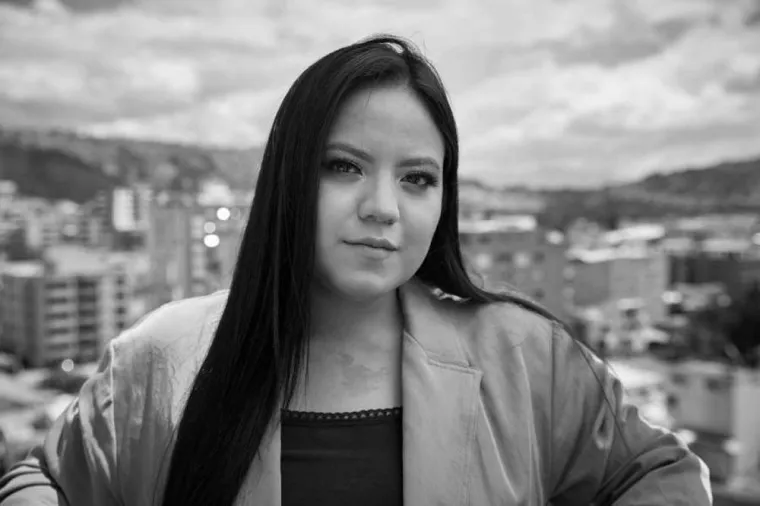Bogotá, April 11, 2022–Ecuadorian authorities must thoroughly investigate a death threat against Karol Noroña, bring those responsible to justice, and ensure that criminal groups do not interfere with the work of the country’s press, the Committee to Protect Journalists said Tuesday.
On March 24, Noroña, a reporter for the independent Quito-based news website GK, met with a source who told her that the leader of a drug trafficking group had threatened to kill the journalist due to her reporting on organized crime and violence in Ecuador’s prisons, according to news reports and Isabela Ponce, GK’s editorial director, who communicated with CPJ via messaging app.
Within 24 hours, Noroña fled Ecuador, Ponce said. She declined to provide more details about the nature of the threat to protect Noroña and her sources. “The plan is for her to stay outside the country until her safe return is guaranteed,” Ponce said.
Ponce told CPJ that GK was still deciding whether to file a criminal complaint with the Attorney General’s office, partly because Noroña has reported on how some alleged drug traffickers and gang leaders may have received lenient treatment from that institution. The Attorney General’s office in Quito, the capital, did not immediately respond to CPJ’s emailed request for comment.
“Ecuadorian authorities must investigate who is behind the threats made to journalist Karol Noroña and ensure that she can return to Ecuador and report safely,” said CPJ Program Director Carlos Martínez de la Serna, in New York. “It is essential that the Ecuadorian authorities take swift action to address threats and harassment to journalists and create an environment where journalists feel safe to do their work.”
Noroña reports on organized crime and Ecuador’s overcrowded penitentiaries that, in recent years, have been the scene of deadly riots that have killed hundreds of prisoners. In March, she reported on the attempted murder of the warden of the women’s prison in Guayaquil, Ecuador’s largest city, and conducted interviews with inmates on the high rate of homicides inside prisons.
In a March 28 statement, GK called the death threat against Noroña “another example of the security crisis and the penetration of drug trafficking in the country that affects all sectors of society.”
On April 3, the Quito-based free press group Fundamedios, in its quarterly report, found that Noroña’s case was the latest in a series of threats by criminal groups against Ecuadorian journalists that were silencing the press in the country. Among other incidents:
- On March 19, the digital station Vinces TV in the southern town of Huaquillas dropped its police and crime coverage and moved to a community news and entertainment format after receiving threats from criminal groups. A March 19 Vinces TV statement, reviewed by CPJ, said: “In a country that doesn’t guarantee the safety of journalists, it’s impossible to report the news with total freedom.”
- Also in March, letter bombs were sent to five TV and radio journalists, one of which exploded and slightly injured a journalist. Authorities were continuing to investigate the origin of the bombs.
- Over several days in early February, Jose Luis Ojeda, general manager of the independent online TV and radio station Antena 7 in the southern city of Loja, received seven phone calls from two criminal gangs who threatened to harm one of the journalist’s daughters unless he paid them US$5,000, according to reports and Ojeda, who communicated with CPJ via messaging app. Ojeda said the extortion threat came after Antena 7 reported on illegal gold mining in the region and the influence of drug money in local politics.
CPJ’s email to the Attorney General’s office in Quito about these cases did not receive a response.
A CPJ delegation will travel to Quito next week and meet with local journalists, editors, members of the national assembly, and authorities, including President Guillermo Lasso, to assess press freedom conditions.
